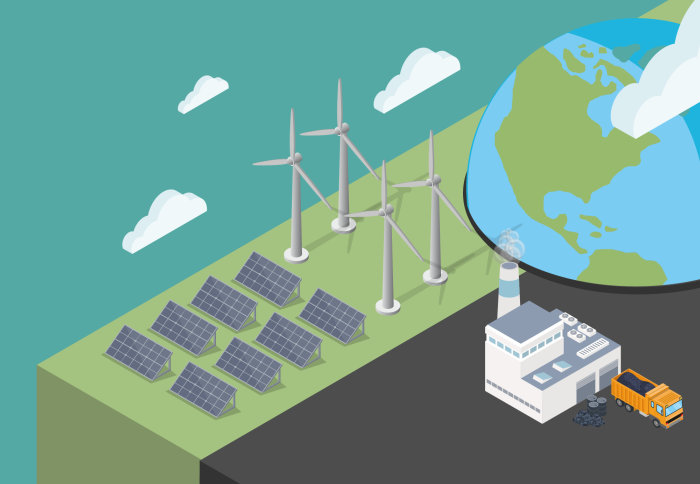Imperial launches online courses on shift to low-carbon energy system

Imperial launches the Clean Power Programme, a Professional Certificate Programme about the global transition to a low-carbon energy system.
The Clean Power Programme, developed by the Grantham Institute – Climate Change and the Environment and the Children's Investment Fund Foundation (CIFF), consists of three Massive Open Online Courses (MOOCs) that are accessible from anywhere in the world and available for free on EdX. Those who complete the courses, can pay a small fee to receive a Professional Certificate.
The courses, taught by Imperial academics including Professor Joanna Haigh, Dr Kris Murray, Professor Richard Green, Dr Ajay Gambhir, Dr Jeffrey Hardy and Dr Clementine Chambon, focus on why the world urgently needs to shift to a cleaner power sector, how policy and regulation can create a ‘pro-renewables’ environment, and how to incorporate renewable energy into electricity grids.

Why clean power is important
There are many advantages to clean power; not only does it help us combat climate change, but it is also cheaper, healthier and will help grow the global economy. Professor Joanna Haigh Co-Director of the Grantham Institute
"Renewable energy offers a way to combat climate change, as well as being cheaper, healthier and better for the economy than outdated fossil fuel technologies," said Professor Joanna Haigh, Co-Director of the Grantham Institute. "For policymakers and business people, our courses offer the most up-to-date knowledge about renewable energy technologies, explore the benefits and opportunities that clean power offers, and present strategies to promote its use. Because every country has unique challenges, our courses will build a catalogue of case studies to inspire new thinking and help people make progress towards the clean power revolution."
Developing clean power action plans
The aim is to help policymakers and businesspeople to develop action plans. Professor Richard Green Professor of Sustainable Energy Business
Professor Richard Green, Professor of Sustainable Energy Business at Imperial College Business School, explains why MOOCs were chosen as a format for delivering the courses. "Cutting edge digital platforms open up our interactive courses to people all around the world. Anyone can study the course information for free, and we are hoping that edX’s Professional Certification will be the new accreditation standard for decision-makers and leaders working on clean energy in government, civil society, policy and business."
"The platform’s discussion boards offer opportunities for participants to connect in an actively engaged global community, seek advice on overcoming barriers that stand in the way of progress and share insights and success stories from their regions."
The Clean Power Programme is part of the edX online platform, which has nine million registered students and runs more than 900 online courses. Several leading figures in the climate and environment sphere feature in the course, including Christiana Figueres, Former Executive Secretary of the UN Framework Convention on Climate Change, and Dr Fatih Birol, Executive Director of the International Energy Agency.
A vision for a clean power future
Kate Hampton, CEO of CIFF, said: "We need nothing short of a paradigm shift to avoid the worst effects of climate change, and these courses are a significant contribution towards giving decisionmakers confidence that low-carbon power sector transformation is feasible, cost-effective, and in the best interests of each country. There is a general lack of understanding about how to integrate clean power into energy systems, and these courses will translate knowledge into action for current and future generations."
The first course, Why move towards cleaner power, explores the advantages and opportunities of shifting to clean power. The second, Creating a pro-renewables environment, looks at how policies and incentives can support clean power. The third, Incorporating Renewable Energy in Electricity Grids, addresses the challenge of increasing the amount of renewable electricity sources in the grid while still achieving a reliable energy supply.
Following a pilot in December, the programme is now officially launched with improvements, including new videos and case study material from different parts of the world.
Each course takes approximately 2-5 hours per week, spread over 5-6 weeks. Find out more on the Grantham Institute website or on the Clean Power Programme EdX site.
To keep up-to-date with research activities, events, publications and training opportunities at the Grantham Institute, sign up to the Grantham Institute Weekly Update.
Article supporters
Article text (excluding photos or graphics) © Imperial College London.
Photos and graphics subject to third party copyright used with permission or © Imperial College London.
Reporter
Lottie Butler
The Grantham Institute for Climate Change
Zara Qadir
Department of Earth Science & Engineering